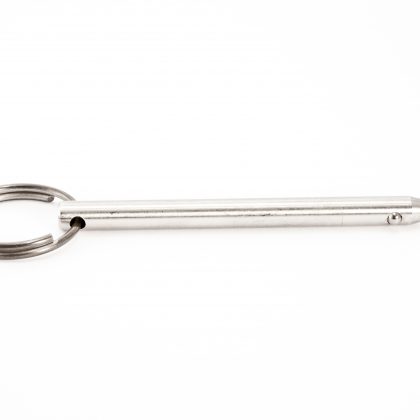
Is civil engineering (CE) harder than mechanical engineering (ME)?
It’s a common question asked by adults seeking a career change and high school students interested in engineering.
Civil Engineering
Civil engineering is the design and maintenance of public works, such as roads, bridges, dams and buildings. Civil engineers are also responsible for coordinating construction activities at project sites. They may oversee a team of engineers and technicians during construction by providing leadership, communicating with other professions and interacting with government agencies.
Civil engineers must be able to complete complex analyses and calculations in order to develop design plans, construction specifications and cost estimates. Students are expected to complete an accredited bachelor’s degree program in civil engineering or an equivalent field like environmental or mechanical before entering into this profession.
Top Civil Engineering Programs
If as a student you want to be surrounded by the best, then look no further than the Ivy League. U.S. News and World Report ranks Princeton, Harvard and Columbia as the top three schools for civil engineering studies in the nation. The rest of the Ivy Leagues – Yale, Brown, Penn, Cornell and Dartmouth – follow closely behind in terms of prestige for both their graduate and undergraduate programs in civil engineering. So what exactly are these schools doing that makes them so great?
As a whole, Ivy Leagues are known for having smaller class sizes with an emphasis on one-on-one attention between professors and students. Their admission standards are extremely high; only 10 percent or less of applicants are accepted into these schools each year (U.S. News & World Report). From this pool of students they pull some of the brightest minds from across the country as well as from abroad to create a diverse learning environment with many perspectives to consider when tackling problems or issues within their programs. These institutions also have more than enough resources to fund research projects for any topic that interests professors or students alike; this includes funding endowed chairs to attract highly qualified scholars who can lend their expertise to important topics within their disciplines..
Ivy Leagues offer outstanding faculty who have received awards and received recognition at national conferences throughout their careers. They also offer many opportunities outside of the classroom such as internships at Fortune 500 companies or working on projects with local government agencies while still receiving academic credit toward graduation requirements through these schools’ cooperative education programs which means you will get real world experience while still working toward graduating on time without taking off extra semesters or summer sessions away from your program.
Mechanical Engineering
Mechanical Engineering is a branch of engineering that deals with the design and manufacturing of machineries and products. It is a broad field, which can cover many different areas and applications. Some of the most exciting jobs for mechanical engineers are in the aerospace and automotive industries. There are also opportunities in medical device design and manufacturing, process design in power generation, marine, and food processing industries, as well as product development.
Mechanical engineers use science and math to solve problems involving power, energy and machines. They work in many industries including healthcare, manufacturing, technology and transportation. Mechanical engineers are involved in design and development of products such as cell phones, computers, robots for surgery etc., but also climate control systems for buildings or power plants that use renewable energy sources like wind or solar power to create electricity
Mechanical engineering graduates find themselves pursuing careers that include designing products from aerospace vehicles to medical devices. They may be responsible for designing products or systems at all stages of the production process. The skills they learn as part of their mechanical engineering program prepare them to work on teams with other engineers throughout the production process, from research through production and quality assurance; thus becoming adept at communicating ideas to others on their team.
Top Mechanical Engineering Programs
According to U.S. News and World Report, the Top 5 Mechanical Engineering Programs are all either Ivy League or MIT.
So you’re interested in a career in Mechanical Engineering, but you don’t know where to start. You’re not the only one! According to U.S. News and World Report, the Top 5 Mechanical Engineering Programs are all either Ivy League or MIT!
So what does that mean for you? If a career in engineering is your goal, you have a lot of choices ahead of you! But remember that it’s important to take things one step at a time, and start small. Here are some ideas on how to get started:
- Volunteer in your local community – There may be an organization that needs volunteers who have experience with mechanics (learn about these organizations by visiting their websites online). Volunteering can help build a foundation for future mechanical engineering careers. If there’s no volunteer opportunity near where you live right now, consider starting one yourself!
- Attend events related to mechanical engineering – Many colleges and universities offer events related to mechanical engineering throughout the year; see if there is one near your home town or city.
- Audit a class – Some schools offer classes specifically designed for students interested in pursuing careers as engineers; talk with teachers at your school about whether they offer any classes you can audit before enrolling yourself into the college/university.
Comparing Civil and Mechanical Salary
Both civil and mechanical engineers receive high starting salaries after college graduation.
Civil engineering and mechanical engineering are both incredibly lucrative careers. In fact, according to the Bureau of Labor Statistics, mechanical engineers make approximately $84,190 per year. Civil engineers have a slightly lower salary at around $79,340 per year. Although civil engineers are paid roughly $5k less per year, they do not have the same job duties as a mechanical engineer. The answer to this question will depend on personal preference and what your career goals are. For example, if you love working with your hands and being in a lab environment, then a career in mechanical engineering would be ideal for you. If you prefer being outdoors and working in groups while managing complex projects, then civil engineering would be best suited for you.
Similarities And Differences Between CE & ME
Both civil and mechanical engineers are similar in that they perform demanding jobs, with great career prospects and salaries. They both do an assortment of projects, from military planes to bridges, from hospitals to ports. They both require a high level of education and training. Both will keep you interested and excited about your work for years to come.
However, although many aspects of the careers are similar, there are differences between the two fields that should be considered carefully when making your decision on what career path to choose.
Civil Engineering vs Mechanical Engineering
In terms of difficulty level for college, these two majors are about equal!
As you begin your college career, one question that may come to mind is “what can I expect my classes to be like?” While this question is often answered in terms of number of classes per week and the amount of reading involved, it can also be asked in terms of difficulty. Your experience with this will vary based on several factors: your individual academic abilities, how well you adapt to reading dense texts and constructing a solid argument, and the level at which you are motivated.
One thing that makes civil engineering (CE) just as challenging as mechanical engineering (ME) is that they both require tons of time working independently. CE and ME both involve lots of complex problem-solving and math, so it can be hard to focus when there aren’t other people around to talk things through with. The fact that these degrees require a lot of focus makes them equally challenging for students who struggle with motivation. Both CE and ME students must learn how to stay focused when studying alone in order to succeed academically.
Should You Choose Civil or Mechanical?
Whether you choose a career as a civil engineer or as a mechanical engineer, there are some clear similarities. Both professions have room for advancement, both offer good pay and benefits, and both give you the chance to do important work that will make an impact on society. The choice really comes down to your personal interests. Do you want to focus on creating structures? Or do machines sound more interesting? Either way, you’ll be doing work that makes a difference in people’s lives.
The decision will always be down to the individual, but both careers are satisfying and well paid.
In the end, it comes down to individual preference. Both engineers are crucial to ensuring we are able to continue our modern life of comfort and luxury uninterrupted. If you’re not sure which direction to take, do as much research as you can on both choices and talk with people who already work in either profession. At the end of the day, whichever career you select will be rewarding, financially lucrative and invaluable for society at large.





